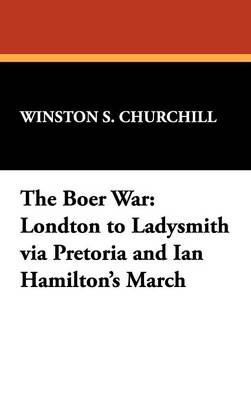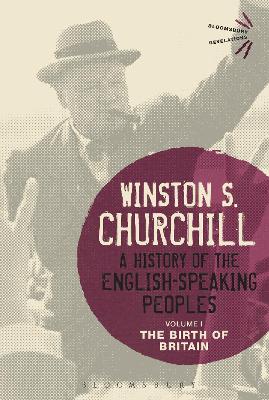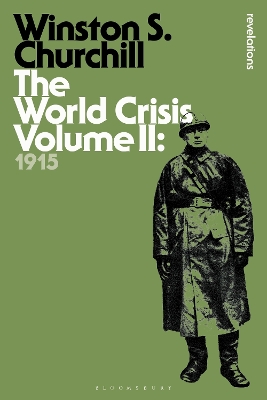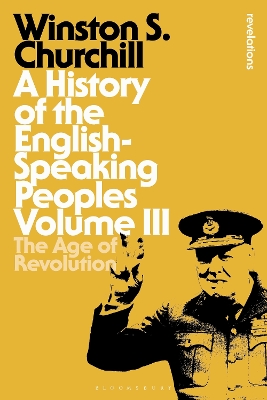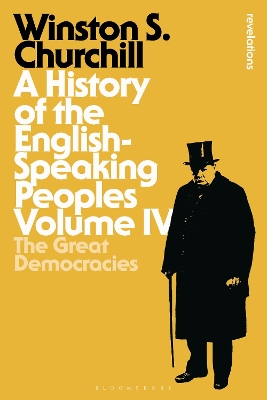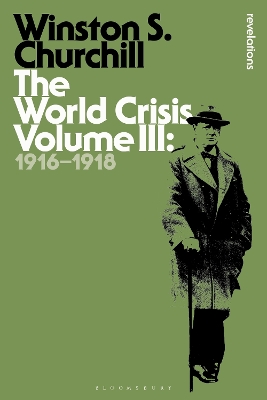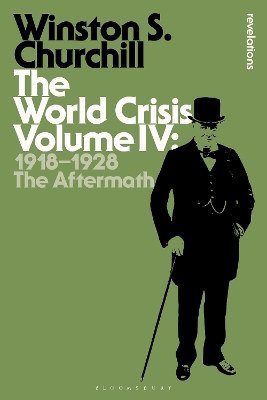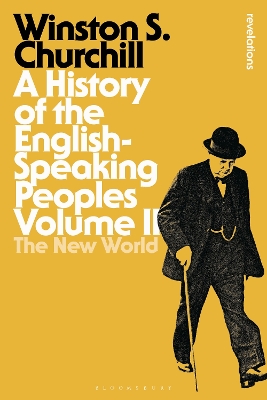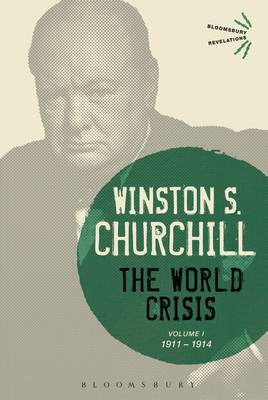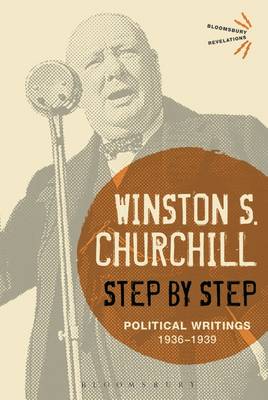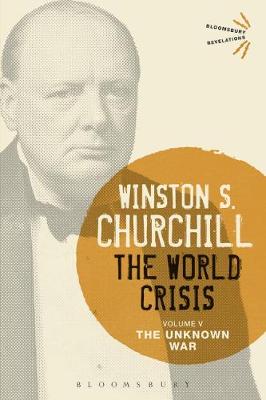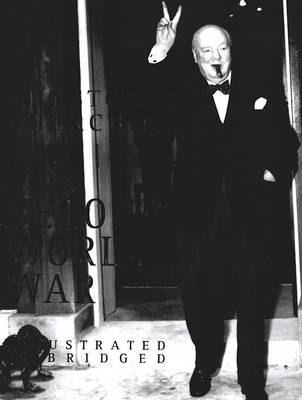Bloomsbury Revelations
14 total works
A History of the English-Speaking Peoples Volume I
by Sir Winston S. Churchill
Spanning four volumes and many centuries of history, from Caesar's invasion of Britain to the start of World War I, A History of the English-Speaking Peoples stands as one of Winston S. Churchill's most magnificent literary works. Begun during Churchill's 'wilderness years' when he was out of government, first published in 1956 after his leadership through the darkest days of World War II had cemented his place in history and completed when Churchill was in his 80s, it remains to this day a compelling and vivid history.
The first volume - The Birth of Britain - tells the story of the formation of the British state, from the arrival of Julius Caesar and the Roman Empire through the invasions of the Vikings and the Normans, the signing of the Magna Carta and establishment of the mother of parliaments to the War of the Roses.
The second volume of Churchill's history covers 1915 - the first full year of a conflict that most of the antagonists had expected to be over in a matter of months. Churchill here covers the intractable deadlock on the western front, the use of tanks and gas on the battlefields and the unsuccessful attempts by both sides to break through. In addition, Churchill also considers his own involvement in the Dardanelles campaign (Gallipoli).
A History of the English-Speaking Peoples Volume III
by Sir Winston S. Churchill
Spanning four volumes and many centuries of history, from Caesar's invasion of Britain to the start of World War I, A History of the English-Speaking Peoples stands as one of Winston Churchill's most magnificent literary works. Begun during Churchill's 'wilderness years' when he was out of government, first published in 1956 after his leadership through the darkest days of World War II had cemented his place in history and completed when Churchill was in his 80s, it remains to this day a compelling and vivid history.
In The Age of Revolution - the third volume of Churchill's history - Churchill charts the rise of Great Britain as a world power and the long rivalry with France, the shadow of the French Revolution, the rise of Napoleon and his defeat at Waterloo. The volume also covers the rise of the American colonies, their triumphant overthrow of British rule in the War of Independence and the first great generation of American leaders: Washington, Adams and Jefferson.
A History of the English-Speaking Peoples Volume IV
by Sir Winston S. Churchill
Spanning four volumes and many centuries of history, from Caesar's invasion of Britain to the start of World War I, A History of the English-Speaking Peoples stands as one of Winston Churchill's most magnificent literary works. Begun during Churchill's 'wilderness years' when he was out of government, first published in 1956 after his leadership through the darkest days of World War II had cemented his place in history and completed when Churchill was in his 80s, it remains to this day a compelling and vivid history.
The Great Democracies is the fourth and final volume of Churchill's history. Here, Churchill reaches the modern era. For Britain, this was the high Victorian era of Palmerston, Gladstone and Disraeli, an age of free trade and imperialism as the British spread to Africa, Australia and New Zealand. Meanwhile the fledgling republic in America endured the great crisis of the Civil War to take its first steps on the road to becoming the world superpower that endures to this day.
The third volume of The World Crisis covers the climax and the end of the war, from 1916-1918. Churchill here explores some of the most important moments of the conflict, including the battles of Verdun, Jutland, Passchendaele and the Somme as well as the American entry into the war that marked the beginning of its end. Churchill here also recounts his time on the front line during his brief exile from political office and his return to government in Lloyd-George's wartime coalition as Minster of Munitions.
In the fourth volume of his history of World War I, Churchill covers the aftermath of the conflict, between the years 1918-1922. Churchill here considers the process of demobilization after the many hard years of war, and the long negotiation of the peace and the Treaty of Versailles, as well as President Woodrow Wilson's famed 14 Points, the founding of the League of Nations and the Revolution and Civil War in Russia.
A History of the English-Speaking Peoples Volume II
by Sir Winston S. Churchill
Spanning four volumes and many centuries of history, from Caesar's invasion of Britain to the start of World War I, A History of the English-Speaking Peoples stands as one of Winston Churchill's most magnificent literary works. Begun during Churchill's 'wilderness years' when he was out of government, first published in 1956 after his leadership through the darkest days of World War II had cemented his place in history and completed when Churchill was in his 80s, it remains to this day a compelling and vivid history.
The second volume - The New World - explores the emergence of Britain on the world stage and a turbulent period at home: from Henry VIII's break with Rome and the English Reformation to the fending off of the Spanish Armada and the schism between parliament and crown that led to the civil war, the fall and rise of the monarchy and the rule of Oliver Cromwell. The book also covers the historic journey of the 'Mayflower' that saw the English-speaking peoples' arrival in the Americas.
Volume I covers the origins and earliest days of the war from 1911-1914, as well as the longer history of the collapse of the Great Power system from the Franco Prussian war onwards. Churchill here explores the international tensions over the Balkan states that triggered the conflict as well as the arms race between the British and German navies.
Now available in the Bloomsbury Revelations series to mark the 70th anniversary of the end of World War Two, Step By Step is a powerful collection of Churchill's newspaper writings in the years before the outbreak of war. Including his writings on the inadequacy of Britain's navy, the dramas of the Spanish Civil War, the influence of the Soviet Union and the alliance between Hitler and Mussolini, the book is a powerful demonstration of Churchill's political foresight and the power of his writing.
In the fifth and final volume of The World Crisis, Winston Churchill turns his attention to the 'forgotten war' on the Eastern Front. His focus is the great rivalry between Russia and the Austro-German alliance during the years of the First World War, from the tensions over Bosnia and Serbia that triggered the conflict through the terrible battles on the Eastern Front to the final collapse of the Russian forces that triggered the Revolution.
